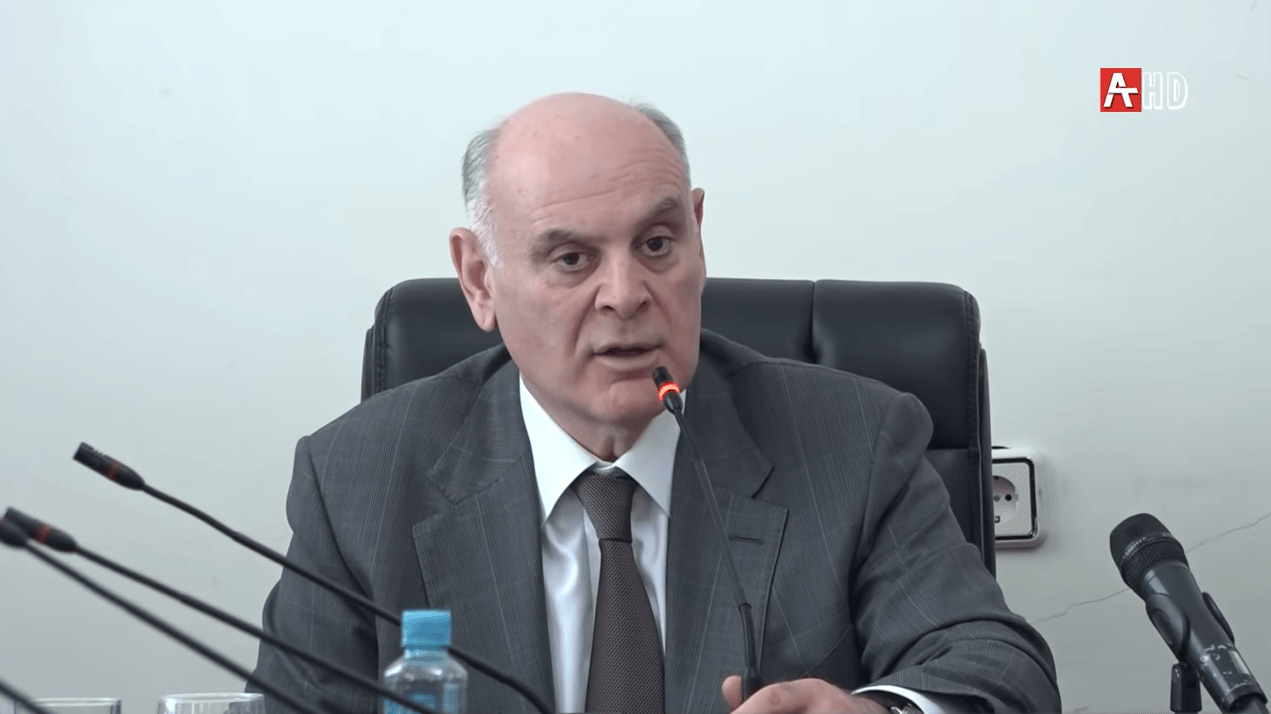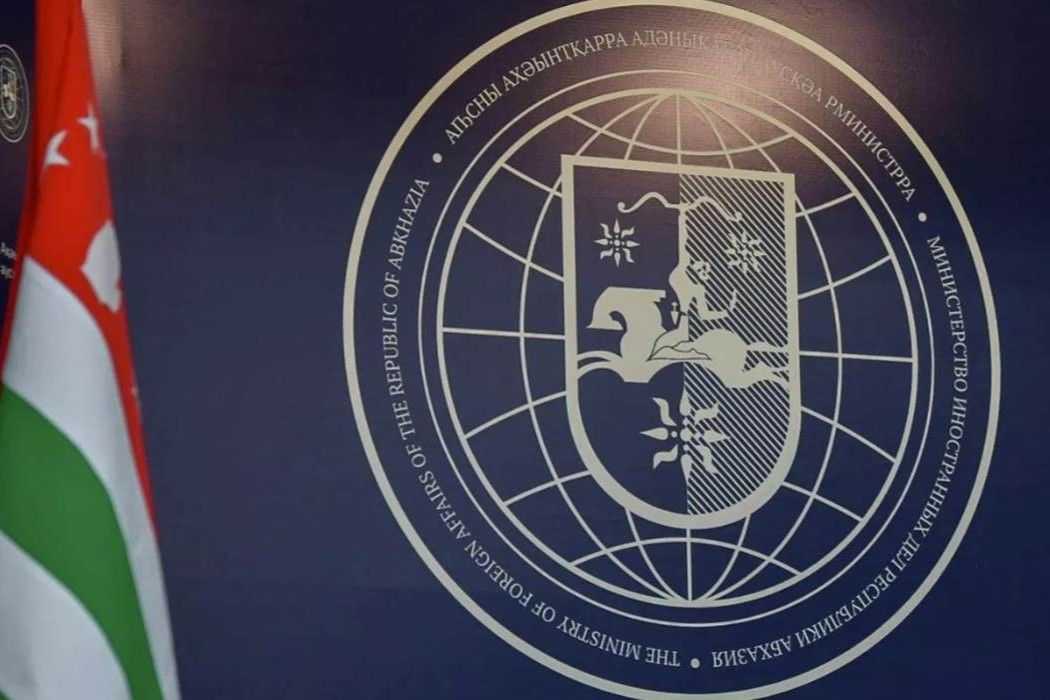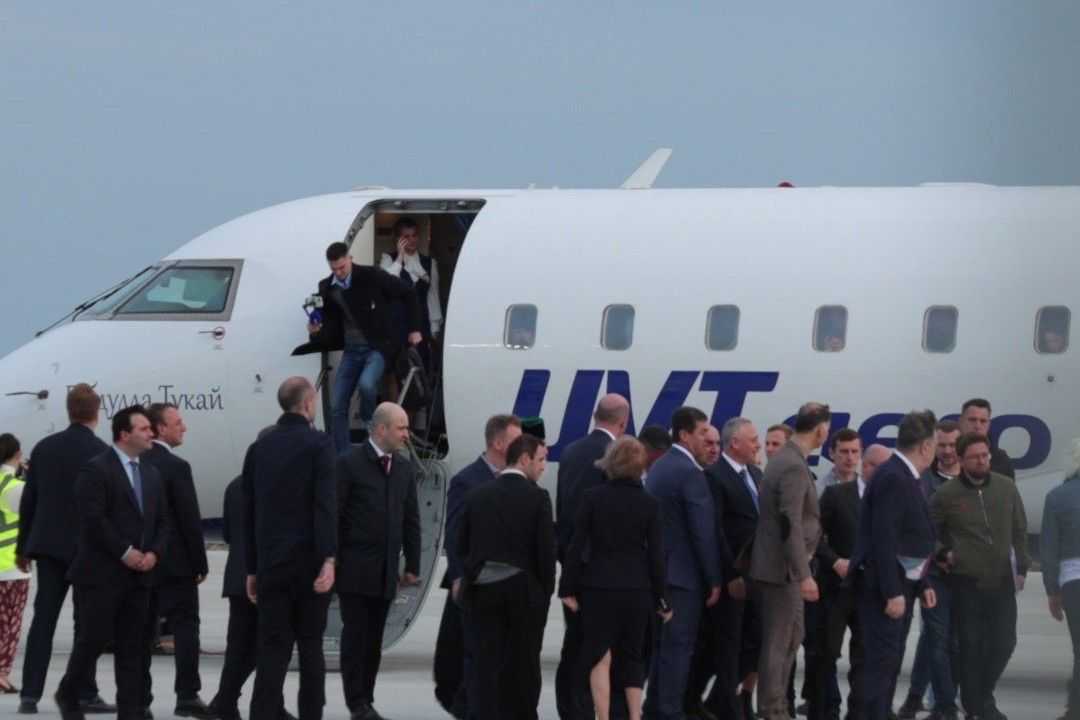
The government in Abkhazia has not received funding from Russia so far in 2020, President Aslan Bzhania has said.
In a meeting with MPs on 2 June, Bzhaniya warned that Russia’s planned funding for Abkhazia in 2020–2022 was expected to be ‘revisited to some degree’.
Despite this, Bzhaniya said he had received assurances from Russian authorities during recent visits to Moscow that the overall level of financing for 2020 would not be reduced.
In December 2019 Russia pledged ₽4.5 billion ($65 million) in aid to Abkhazia for 2020–2022.
Of this, ₽1.5 billion ($22 million) was allocated for renewing Abkhazia’s roads, setting up a waste disposal site, modernising power stations and distribution networks, building a new prison, and renewing the water supply and wastewater disposal systems this year.
Bzhaniya noted that the Abkhazian authorities had failed to reach the goals set by the aid programme in recent years.
He said that the finance and economy ministries and other ‘respective agencies’ were ‘looking into the issue’, hinting at a possible investigation into the previous administration.
Later this month, Bzhaniya is expected to visit Russia for the third time in recent months to participate in a Victory Day parade marking the 75th anniversary of the Soviet Union’s victory in World War II.
Several months before the global pandemic outbreak, the Kremlin made several substantial changes that could influence the Russian government’s handling of Abkhazia.
These included the January departure of Russian presidential aide and curator of policy towards Abkhazia, Vladislav Surkov.
In the same month, the North Caucasus Affairs Ministry — which oversaw Russian aid to Abkhazia — was absorbed by Russia’s Ministry of Economy.
Bzhaniya also confirmed to MPs on Tuesday that a ban on Russians purchasing land and property in Abkhazia was raised by Russian officials during his recent visit.
The news came at a time of increased economic strain — as Abkhazia comes to grips with the global COVID-19 pandemic, with the potential loss of tourism revenue a major concern. Bzhaniya’s suggestions to deal with the resulting gap in the budget have included formalising trade between Abkhazian farmers and markets in Georgian-controlled territory.
A budget crisis
The COVID-19 pandemic has had economic and budgetary implications for Abkhazia. In early April, the Abkhazian government granted tax relief to small businesses for two months to ease the burden caused by the state of emergency declared in late March.
During the 2 June meeting with Abkhazian lawmakers, Bzhaniya admitted that government revenues in April and May had been halved, calling the situation ‘alarming’.
He warned that this could have ‘serious’ implications on government spending but vowed to maintain spending on salaries of government employees, pensions, and healthcare.
He said the government was expecting help from Russia to compensate for losses to the budget caused by anti-pandemic measures as well as ₽117 million ($1.7 million) to help counter the brown marmorated stink bug, an agricultural pest.
Tourism — primarily from Russian tourists over the summer — remains a major source of income for Abkhazia’s economy
Prospects for this year’s tourist season became a public focus as anti-pandemic measures instituted since March have largely limited Abkhazia’s economic life and the border with Russia remains bilaterally closed.
During the 2 June meeting, Bzhaniya said the authorities were considering opening the border in a ‘synchronised’ manner with the Russian authorities.
He said this would involve tourists having ‘COVID-passports’, a recent international practice of confirming that a traveller has tested negative for coronavirus or already acquired immunity to it.
Olesya Vartanyan, an analyst for the International Crisis Group, a peace-building group, told OC Media that the Abkhazian government budget was in trouble even before the COVID-19 crisis.
‘Russia’s financial support to Abkhazia and South Ossetia has been on a decline since the 2014 sanctions and problems with Russia’s economy’, Vartanyan said.
‘The Abkhaz leadership entered the COVID crisis with the budget empty after the continued political turbulence and three votes the region went through since Spring 2019’, she added.
Formalising trade across the Enguri
During the 2 June meeting, Bzhniya also spoke about his wish to formalise trade moving between Abkhazia and Georgian controlled-territories.
According to him, a ‘maximum of 10%’ of Abkhazia’s annual 11,000–12,000-tonne hazelnut harvest was exported to Russia. The rest — ‘product worth ₽1 billion ($14.5 million), goes to Georgia’ — he said.
He proposed the Abkhazian government stop ‘making smugglers’ out of those currently taking agricultural products across the River Enguri (Ingur), claiming that billions of roubles ‘line the pockets of people who are basically engaged in smuggling’.
‘Why should that kind of money bypass the public purse? To whom and what are we proving with such an approach? I think that this should be revisited’, Bzhaniya stated.
On 23 March, a day after being elected, Bzhaniya reiterated proposals for bilateral talks with Tbilisi.
The only current format of talks between Georgian and Abkhazian officials is the Geneva International Discussions, which is co-chaired by the EU, OSCE, and UN, and includes negotiators from the US and Russia.
Bzhaniya said that direct talks were needed in order to address challenges related to residents of Abkhazia obtaining medical services on Georgian-controlled territory, the movement of criminals across the Enguri, and shared electricity generated by the Enguri dam.
Direct talks with Abkhazian authorities have been an explosive subject in Georgia.
Suggestions from then–Prime Minister Bidzina Ivanishvili in 2013 and later by Prime Minister Giorgi Kvirikashvili in 2018 to hold direct talks with Abkhazian authorities led to accusations that they were endangering Georgia’s territorial integrity as well as the ‘Geneva format’ of discussions.
In April 2018, under Giorgi Kvirikashvili’s premiership, Georgia unveiled plans to offer ‘status-neutral labelling’ for goods produced in Abkhazia so that they could be exported via Georgian controlled territories. The plan could mean that such goods could be exported to EU markets under Georgia’s trade deal with the EU.
OC Media has reached out to the Office of Georgia’s State Minister for Reconciliation for a comment.
For ease of reading, we choose not to use qualifiers such as ‘de facto’, ‘unrecognised’, or ‘partially recognised’ when discussing institutions or political positions within Abkhazia, Nagorno-Karabakh, and South Ossetia. This does not imply a position on their status.







